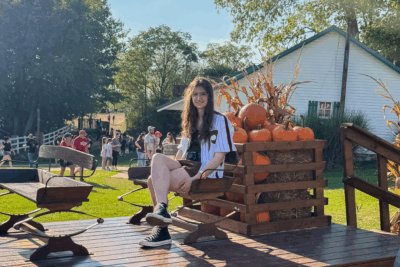In May 2009 Dr. Doug Schwartzentruber, medical director of the Goshen Center for Cancer Care and a 1978 graduate of Goshen College, announced the results of the clinical trials for a vaccine to treat metastatic melanoma (skin cancer that has spread to other parts of the body). Little did he know that his successful research would earn him recognition a year later as one of Time Magazine’s “100 Most Influential People.”
“My first reaction [to being on the list] was disbelief,” said Schwartzentruber. “I was shocked and wondered why they picked me out of so many people.”
On the evening of Sunday, May 2nd Schwartzentruber and his wife, Diane White, director of Goshen College's Wellness & Health Center, went to the gala in New York City to celebrate his inclusion on the list that this year also acknowledges Barack Obama, Lady Gaga and Elton John.
“As we walked down the red carpet, there were hundreds of flashes and they [paparazzi] were shouting at us to pose for them,” said Schwartzentruber.
Schwartzentruber earned his spot on the list together with Dr. Larry Kwak, who successfully tested a vaccine used to treat lymphoma. “We both started at the National Cancer Institute (NCI) in different departments studying different cancers,” said Schwartzentruber. “We started our studies 10 years ago, left NCI to continue our research, and both finished last year.”
Schwartzentruber’s research proved that a vaccine, when given together with the current melanoma treatment, can get a higher response rate for tumor shrinkage of metastatic melanoma.
The research took lots of patience and perseverance, but Schwartzentruber never thought about quitting. “The hardest thing was that it took ten years, and the whole time not knowing whether it would be worth it,” said Schwartzentruber.
His study looked at 185 patients nationwide, and he had to wait until he received all the results before he could declare whether the vaccine was successful or not.
“We designed the study in advance and knew that it would take a long time,” said Schwartzentruber. “My nature is to be persistent, and also you have to have the numbers for the statistics, so stopping early would have been a waste.”
He credits Goshen College with fostering a strong work ethic. “At Goshen College I had to apply myself to a strong pre-med program that helped me develop good study habits,” said Schwartzentruber, “and surrounded me with an environment of learning that prepared me well for medical school.”
Schwartzentruber’s place on Time magazine’s Top 100 list has given him lots of attention. “A lot of people, mostly family and friends, have been calling and sending cards and e-mails,” said Schwartzentruber. “Also, everywhere I go now, someone will recognize me.”
The success of both Schwartzentruber’s and Kwak’s cancer vaccine studies is a starting point for further research into vaccines to cure cancer. Schwartzentruber wants to start testing more potent vaccines. “This was a once in a lifetime event that is more motivation for me to continue to work and develop cancer treatments,” said Schwartzentruber.

